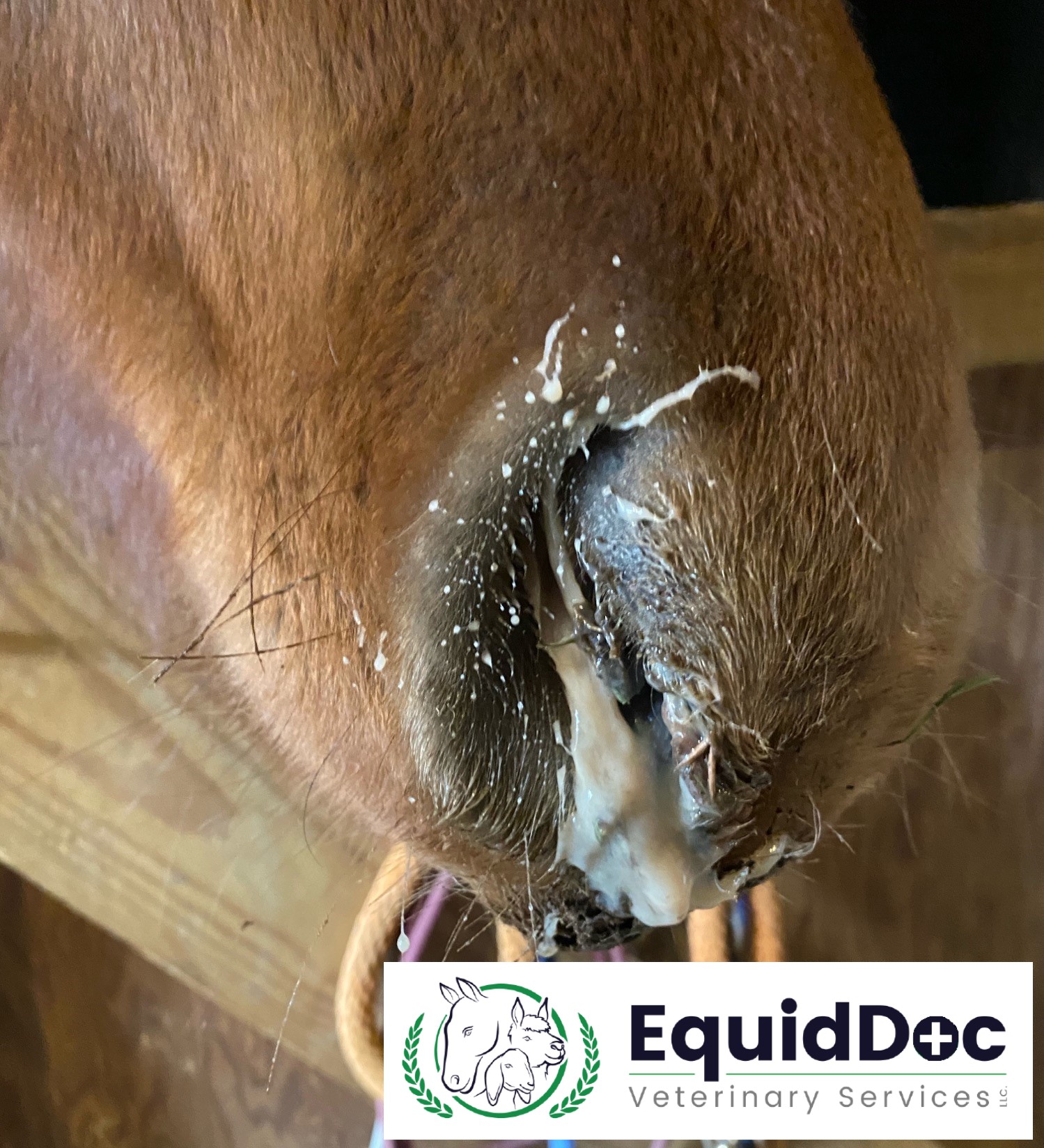Streptococcus equi subspecies equi, also referred to as strangles, strep, or S. equi, is a highly contagious, yet common, upper respiratory bacterial disease that can affect any equine at any age. Summer weather in New England is an excellent environment for strangles to spread and thrive, especially in high trafficked locations such as horse shows, clinics, boarding facilities, and rescues! Most horses recover uneventfully with supportive care, but some may need rigorous medical intervention and could ultimately succumb to disease complications.
Strangles got its name due to symptoms such as swollen submandibular lymph nodes & thick nasal discharge causing a strangulating type of cough. Other symptoms include fever, lethargy, decreased appetite, and in some cases, swelling below the base of the ears. The bacteria are spread through nasal secretions from nose-to-nose contact, sharing equipment, coughing & sneezing horses on the same property, sharing feed & water dishes, etc. Humans can also transport the bacteria via boots, gloves, clothing, and tack. It is highly recommended that any horse suspected of strangles be taken care of after all healthy horses have been taken care of or have one person dedicated to taking care of the suspected strangles horse(s) only to avoid transmission between sick and healthy horses on the farm.
Diagnosis can be made using a few different methods, but the most common is collecting a nasal or nasopharyngeal swab or wash to be tested at a lab. Further, bloodwork may be recommended for older or immune-compromised patients to get a better picture of their overall health at that time. The state of Massachusetts requires any positive strangles test to be reported to the state veterinarian and state guidelines for quarantining and re-testing be implemented. Your EquidDoc veterinarian will help you navigate proper protocols, testing, and treatments necessary for the best outcome.
Prior to and after official diagnosis, your EquidDoc veterinarian will ask that you keep a twice-daily temperature/health check log for every horse on the property to help quickly identify and separate other symptomatic horses. Continued strict monitoring of the symptomatic horses is needed to determine if further medical intervention is required such as systemic antibiotics, regional antibiotics, fluids, fever-reducing medication, etc.
Vaccines are available to help prevent infection in traveling horses or horses that are stabled with traveling horses. The initial vaccine requires a booster in 3-4 weeks from the first, then requires a booster every 6 months thereafter for the best protection. Your EquidDoc veterinarian can help you decide if the vaccine is appropriate for your horse’s lifestyle. Farm biosecurity measures in conjunction with routine vaccination remain the gold standard for the prevention of strangles. Other helpful insights include quarantining new horses and horses returning from travel, daily health checks, disinfecting shared tack, changing, or cleaning boots and clothing between farms, hand washing between handling horses, and caring for ill horses last.

